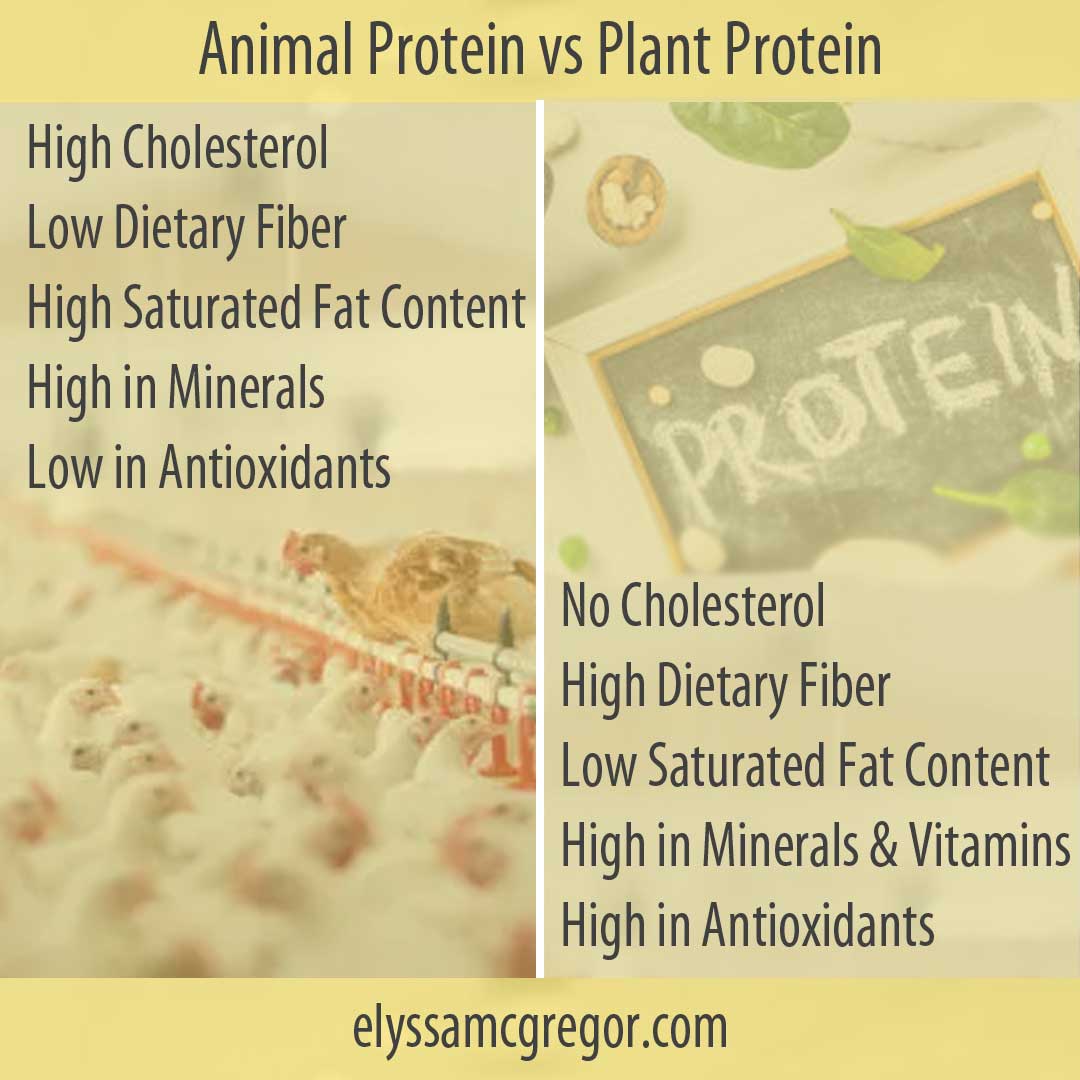
The Ultimate Guide to Losing Weight with a Plant-Based Diet
Are you looking to shed those extra pounds and adopt a healthier lifestyle? Look no further! In this ultimate guide, we will show you how to lose weight effectively and sustainably with a plant-based diet.
Embracing a plant-based diet has become increasingly popular in recent years, and for good reason. Not only does it support weight loss, but it also offers a wide range of health benefits, including improved heart health, increased energy levels, and reduced risk of chronic diseases.
In this comprehensive guide, we will dive into the science behind plant-based eating and explore the various ways you can incorporate plant-based foods into your everyday life. From planning your meals to understanding the different nutrient requirements, we’ll cover it all.
Whether you’re a vegan newbie or a seasoned plant-based enthusiast, this guide is designed to provide you with valuable insights and practical tips to help you achieve your weight loss goals. So get ready to embark on a transformative journey towards a healthier, slimmer you!
Benefits of a plant-based diet for weight loss
A plant-based diet, rich in fruits, vegetables, whole grains, legumes, nuts, and seeds, offers numerous benefits when it comes to weight loss. Here are some key reasons why adopting a plant-based diet can be effective in shedding those extra pounds:
1. High in fiber: Plant-based foods are typically high in fiber, which promotes satiety and helps control appetite. Fiber-rich foods also tend to be lower in calories, making them an excellent choice for weight loss.
2. Lower in calories: Plant-based diets are naturally lower in calories compared to diets that include animal products. Animal products often contain higher amounts of saturated fats and cholesterol, which can contribute to weight gain. By focusing on plant-based foods, you can reduce your overall calorie intake and create a calorie deficit necessary for weight loss.
3. Nutrient-dense: Plant-based foods are packed with essential vitamins, minerals, and antioxidants. These nutrients not only support overall health but also help your body function optimally during weight loss. When your body is well-nourished, you’ll have more energy and feel satisfied with your meals, reducing the temptation to overeat.
Incorporating more plant-based foods into your diet can lead to significant weight loss and improve your overall well-being. Now that we’ve explored the benefits, let’s delve into the science behind plant-based eating and understand the role of macronutrients in a plant-based diet.

Animal Protein vs Plant Protein
Understanding macronutrients in a plant-based diet
Macronutrients, namely carbohydrates, proteins, and fats, are essential for providing energy and supporting various bodily functions. Understanding how to balance these macronutrients in a plant-based diet is crucial for achieving weight loss goals. Let’s take a closer look at each macronutrient:
1. Carbohydrates: Contrary to popular belief, carbohydrates are not the enemy when it comes to weight loss. In fact, they are an essential source of energy for your body. Opt for complex carbohydrates found in whole grains, fruits, and vegetables, as they provide sustained energy and are rich in fiber. These foods are more filling and can help you stay satisfied for longer periods, preventing overeating.
2. Proteins: Protein is vital for building and repairing tissues, as well as supporting muscle growth and maintenance. While animal products are often associated with high protein content, plant-based sources can also provide ample protein. Include foods like legumes, tofu, tempeh, seitan, and quinoa in your diet to ensure you’re meeting your protein needs. These plant-based proteins are not only leaner but also come with additional health benefits.
3. Fats: Healthy fats are an essential part of a balanced diet and play a crucial role in weight loss. Opt for unsaturated fats found in avocados, nuts, seeds, and olive oil. These fats are heart-healthy and can help you feel satisfied after meals. However, moderation is key, as fats are calorie-dense.
By understanding the role of macronutrients in a plant-based diet, you can create a meal plan that is both nutritious and conducive to weight loss. Let’s move on to the next section, where we’ll explore how to create a meal plan specifically tailored for weight loss.
Creating a meal plan for weight loss
Planning your meals is an essential step towards successful weight loss with a plant-based diet. Here are some tips to help you create a meal plan that supports your weight loss goals:
1. Set realistic calorie goals: To lose weight, you need to create a calorie deficit. Start by calculating your daily calorie needs using an online calculator. Then, aim to reduce your calorie intake by 500-1000 calories per day for gradual and sustainable weight loss.
2. Focus on whole, unprocessed foods: Fill your plate with a variety of fruits, vegetables, whole grains, legumes, nuts, and seeds. These foods are nutrient-dense, low in calories, and high in fiber, making them perfect for weight loss.
3. Include a variety of colors: Different colored fruits and vegetables provide a wide range of vitamins, minerals, and antioxidants. Aim to include a variety of colors in your meals to ensure you’re getting a diverse range of nutrients.
4. Plan your meals in advance: Take some time each week to plan your meals and create a shopping list. Having a plan in place will help you make healthier choices and prevent you from reaching for convenient, unhealthy options.
5. Batch cook and meal prep: Prepare large batches of plant-based meals and portion them out for the week. This will save you time and make it easier to stick to your meal plan, even on busy days.
6. Stay hydrated: Drink plenty of water throughout the day. Sometimes, thirst can be mistaken for hunger, leading to unnecessary snacking. Hydrating properly can help you differentiate between hunger and thirst.
Remember, consistency is key when it comes to weight loss. Stick to your meal plan and make adjustments as needed. In the next section, we’ll explore how incorporating exercise into your plant-based weight loss journey can further enhance your results.
Incorporating exercise into your plant-based weight loss journey
While diet plays a significant role in weight loss, incorporating regular exercise can further enhance your results. Exercise not only burns calories but also increases your metabolism, improves cardiovascular health, and helps build lean muscle mass. Here are some tips to help you incorporate exercise into your plant-based weight loss journey:
1. Find an activity you enjoy: Whether it’s jogging, cycling, dancing, swimming, or practicing yoga, choose an activity that you genuinely enjoy. This will make it easier to stick to your exercise routine and stay motivated.
2. Start slowly and gradually increase intensity: If you’re new to exercise or have been inactive for a while, start with low-intensity workouts and gradually increase the intensity and duration. This will help prevent injuries and ensure a sustainable exercise routine.
3. Combine cardio and strength training: A combination of cardiovascular exercises and strength training is ideal for weight loss. Cardio exercises like running or cycling can help burn calories, while strength training exercises like weightlifting or bodyweight exercises can build lean muscle mass and boost your metabolism.
4. Set realistic goals: Set achievable exercise goals that align with your fitness level and lifestyle. Start with small goals and gradually increase the intensity and duration of your workouts as you progress.
5. Stay consistent: Consistency is key when it comes to exercise. Aim for at least 150 minutes of moderate-intensity aerobic activity or 75 minutes of vigorous-intensity aerobic activity per week, along with strength training exercises at least two days a week.
By incorporating regular exercise into your plant-based weight loss journey, you can maximize your results and improve your overall fitness and well-being. However, staying motivated and overcoming challenges along the way is equally important. In the next section, we’ll share some tips to help you stay on track.
Tips for staying motivated and overcoming challenges
Embarking on a weight loss journey can be challenging, but with the right mindset and strategies, you can stay motivated and overcome obstacles along the way. Here are some tips to help you stay on track with your plant-based weight loss goals:
1. Set realistic and achievable goals: Set specific, realistic, and achievable goals that are in line with your lifestyle and preferences. Break down your larger goals into smaller, manageable steps to stay motivated.
2. Track your progress: Keep a record of your meals, exercise routines, and progress. This will help you stay accountable and track your achievements, no matter how small. Celebrate every milestone and use them as motivation to keep going.
3. Find support: Surround yourself with like-minded individuals who share similar goals. Join online communities, attend plant-based cooking classes, or find a workout buddy to keep you motivated and accountable.
4. Practice self-care: Take care of your overall well-being by prioritizing self-care. Get enough sleep, manage stress levels, and indulge in activities that bring you joy and relaxation. A healthy mind and body go hand in hand when it comes to weight loss.
5. Stay positive: Focus on the positive aspects of your weight loss journey and celebrate every small victory. Be kind and patient with yourself, as weight loss takes time. Don’t let setbacks discourage you; instead, learn from them and keep moving forward.
Remember, weight loss is a journey, and there will be ups and downs along the way. Stay committed, stay motivated, and most importantly, enjoy the process. In the next section, we’ll provide you with some delicious plant-based recipes that are perfect for weight loss.
Plant-based recipes for weight loss
Eating healthy and delicious meals is an essential part of any weight loss journey. Here are some plant-based recipes that are not only nutritious but also packed with flavor:
1. Quinoa and Vegetable Stir-Fry: Sauté colorful vegetables like bell peppers, broccoli, and carrots in a splash of low-sodium soy sauce and garlic. Add cooked quinoa and toss to combine. Garnish with chopped green onions and sesame seeds for extra flavor.
2. Chickpea Salad Wraps: Mash cooked chickpeas with avocado, lemon juice, and your favorite herbs and spices. Spread the mixture onto whole-grain wraps and top with lettuce, tomatoes, and cucumbers. Roll up and enjoy as a satisfying and protein-packed lunch.
3. Roasted Veggie Buddha Bowl: Roast a variety of vegetables like sweet potatoes, Brussels sprouts, and cauliflower in the oven until tender. Serve over a bed of quinoa or brown rice, and top with a drizzle of tahini sauce for a hearty and nutritious meal.
4. Green Smoothie: Blend together a handful of spinach, a frozen banana, a cup of almond milk, a tablespoon of nut butter, and a scoop of plant-based protein powder. This refreshing smoothie is packed with nutrients and makes for a perfect post-workout snack.
These are just a few examples of the many delicious plant-based recipes available. Get creative in the kitchen and experiment with different ingredients and flavors to find your favorites. Now that you have some delicious recipes, let’s move on to the next section, where we’ll explore how to track your progress and adjust your plan as needed.
Tracking your progress and adjusting your plan
Tracking your progress is essential for staying accountable and making adjustments to your plant-based weight loss plan. Here are some ways to track your progress and make necessary adjustments:
1. Keep a food diary: Write down everything you eat and drink, including portion sizes. This will help you become more mindful of your food choices and identify any areas where you may need to make adjustments.
2. Monitor your weight: Weigh yourself regularly, preferably once a week, to track your progress. Keep in mind that weight loss is not linear, and fluctuations are normal. Focus on the overall trend rather than day-to-day changes.
3. Measure your body: In addition to weighing yourself, consider measuring your waist, hips, and other areas of your body. Sometimes, changes in body composition may not be reflected on the scale, but measuring can provide a more accurate picture of your progress.
4. Listen to your body: Pay attention to how you feel physically and emotionally. Are you feeling more energized? Are your clothes fitting better? These non-scale victories are also important indicators of progress.
5. Make adjustments as needed: If you’re not seeing the desired results, don’t get discouraged. Evaluate your meal plan, exercise routine, and lifestyle factors. Make adjustments accordingly, such as reducing portion sizes, increasing exercise intensity, or seeking professional guidance if needed.
Remember, everyone’s weight loss journey is unique. What works for one person may not work for another. Be patient with yourself and be open to making necessary adjustments along the way. In the next section, we’ll address some common misconceptions about plant-based diets and weight loss.
Common misconceptions about plant-based diets and weight loss
With the rising popularity of plant-based diets, there are often misconceptions and myths surrounding their effectiveness for weight loss. Let’s debunk some of these common misconceptions:
1. Plant-based diets lack protein: This is a common misconception, as plant-based diets can provide ample protein through sources like legumes, tofu, tempeh, seitan, and quinoa. By incorporating a variety of plant-based protein sources into your diet, you can meet your protein needs for weight loss.
2. Plant-based diets are restrictive: While plant-based diets eliminate or limit animal products, they are far from restrictive. There is a wide variety of plant-based foods available, allowing for endless creativity in the kitchen. With proper planning and knowledge, plant-based diets can be diverse, delicious, and satisfying.
3. Plant-based diets are expensive: While some plant-based specialty products can be pricier, a plant-based diet can actually be more affordable. Staples like grains, legumes, fruits, and vegetables are often less expensive than meat and dairy products. Shopping seasonally, buying in bulk, and cooking at home can also help save money.
4. Plant-based diets lack essential nutrients: A well-planned plant-based diet can provide all the essential nutrients your body needs. However, it’s important to pay attention to nutrient requirements, especially for nutrients like vitamin B12, iron, and omega-3 fatty acids. Consider consulting a healthcare professional or registered dietitian for personalized guidance.
By dispelling these misconceptions, we can better understand the effectiveness and benefits of a plant-based diet for weight loss
Conclusion: Embracing a healthier lifestyle with a plant-based diet
In conclusion, a plant-based diet can be a powerful tool for weight loss and overall health. By focusing on whole, unprocessed plant-based foods, planning your meals, and paying attention to key nutrients, you can achieve your weight loss goals while enjoying a wide range of health benefits.
Remember, transitioning to a plant-based diet is a journey, and it’s important to be patient with yourself. Start by making small, sustainable changes and gradually incorporate more plant-based foods into your meals. With time, you’ll not only see the numbers on the scale go down but also experience increased energy, improved digestion, and a renewed sense of well-being.
So why wait? Start your plant-based weight loss journey today and reap the countless benefits of embracing a healthier lifestyle. Your body and mind will thank you!


